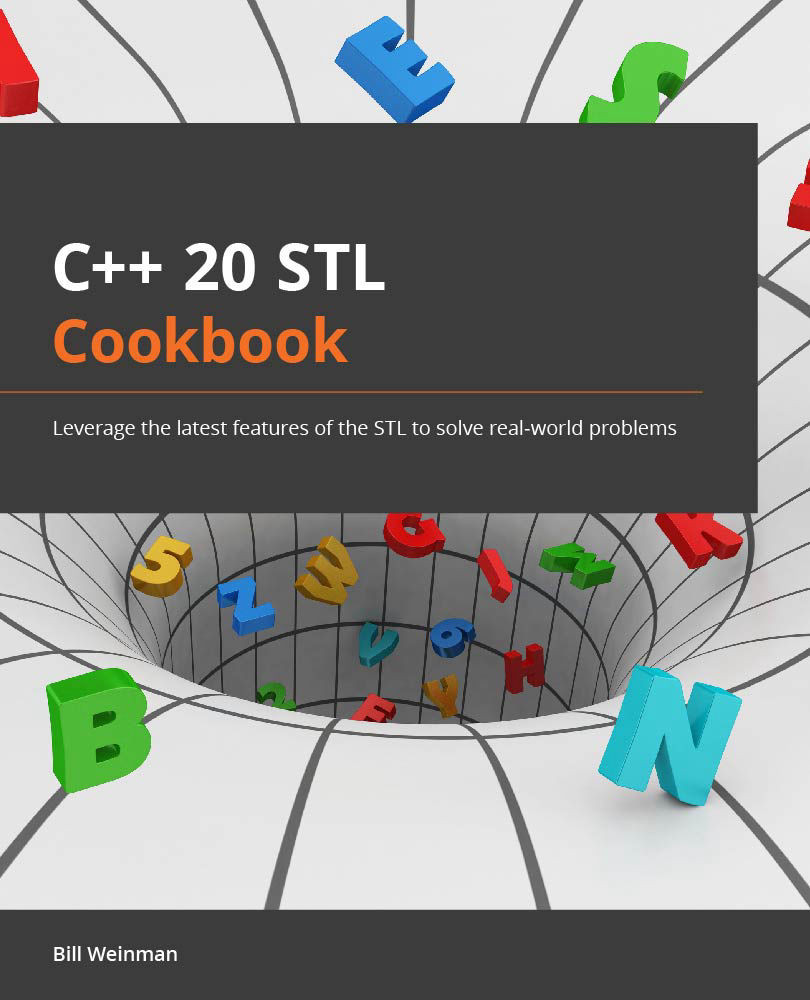-
Book Overview & Buying

-
Table Of Contents

C++20 STL Cookbook
By :

C++20 STL Cookbook
By:
Overview of this book
 Free Chapter
Free Chapter
 Sign In
Start Free Trial
Sign In
Start Free Trial

 Free Chapter
Free Chapter
Some objects don't have a specific length. To know their length, you need to iterate through all their elements. For example, elsewhere in this chapter we've seen a generator that doesn't have a specific length. A more common example would be a C-string.
A C-string is a primitive C-array of characters, terminated with a null '\0' value.
Figure 4.5 – A C-string with its null terminator
We use C-strings all the time, even if we don't realize it. Any literal string in C/C++ is a C-string:
std::string s = "string";
Here, the STL string s is initialized with a literal string. The literal string is a C-string. If we look at the individual characters in hexadecimal, we'll see the null terminator:
for (char c : "string") {
std::cout << format("{:02x} ", c);
}
The word "string" has six letters...
